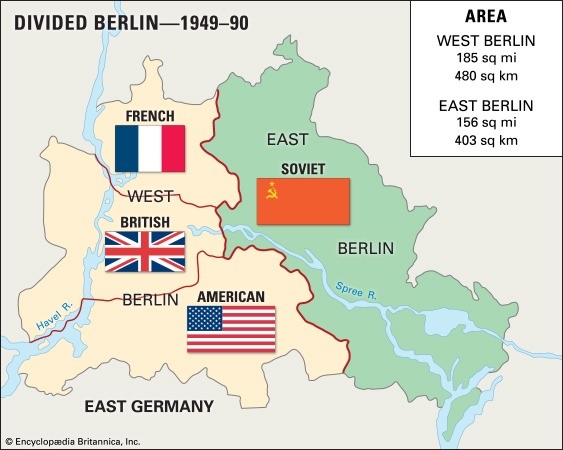World War Conferences & Formation of UN
by Devender
0 1873
The major allied forces held many conferences during the Second World War and issued declarations that form the basis of peace and no country will seek more territory. They made it clear to allow the support of people to form a government of their choice and all the Chinese territories to be taken away from Japan control.
World War Conferences
Leaders of Britain (Churchill), USA (Roosevelt), and Soviet Union (Stalin) got together at Teheran and declared their resolve to "banish the scourge and terror of war and to create a world in which all peoples may live free lives untouched by tyranny & according to their varying desires & their own consciences".
- Yalta Conference:
- They agreed on how to deal with Germany and non-German territories which got freedom during the war
- It was at this conference, they decided to set up an organization replacing the League of Nations
- Potsdam Conference:
- Germany was divided into 4 parts and each part was controlled by France, Britain, Soviet Union, and the USA
- The main aim of the allied powers was to bring complete disarmament of Germany, destroying the Nazi party, and create a democratic Germany
- It was also decided to set up an international tribunal to judge people who have committed inhuman crimes
Early in 1945 when Germany was nearly defeated, Heads of the USA, Britain, and the Soviet Union got together at Yalta in the Soviet Union where they agreed on a number of issues.

After Yalta, another major conference of the three major allies' powers was held in Potsdam near Berlin in 1945. In this conference, the three declared their aims for Germany which already had surrendered.

Many other significant decisions were also made during this conference like deciding the border between Poland and Germany. The northern part of East Prussia was given to the Soviet Union and the Southern part was given to Poland.
Formation of United Nations Organization
The formation of the UN was based on the principle of "the sovereign equality of all peace-loving states". Its main purposes were to maintain World peace & security along with developing friendly relations between nations and solve international problems like economic, social, cultural, and humanitarian.
- It had 5 permanent members who were the biggest powers at that time
- It was decided that any decision of the security council must be supported by all five members
- The emergence of the UN was one of the best consequences of Second World War
- Britain and US declared in 1941 that they will not seek any territory
- In 1942, UN declared that all the Chinese territory acquired by Japan would be returned to China
- In 1943, the leaders of US, Britain, and Soviet Union met at Teheran and declared their resolve to "banish the scourge and terror of war"
- In Yalta conference, the decision of formation of UN was taken
- San Francisco conference of 1945 was attended by 50 nations and the charter of the UN was adopted
- Conference of Potsdam
- UN came into existence in October 1945 replacing the League of Nations
There were some major factors that led to the formation of the UN that are listed below.
Performance of UN
- The success of UN:
- UN provided a platform where all countries come together and can discuss their issues.
- Without it, there would be different blocks working on their ideology which could bring another world war.
- Although it was not able to prevent wars from happening, it was able to end those wars quickly keeping damages to a minimum.
- Through the UN, even the smallest of countries can make their voice heard.
- It has done outstanding work in addressing the human rights, social and gender-related issues by Universal Declaration of Human Rights.
- It also stimulates international cooperation on economic, social, and technical matters.
- Limitations of UN:
- It didn't have a permanent army:
- Indecisions:
- Problems of different opinions:
- Duplication of Work:
- Lack of funding:
It never had its own army, it had to rely on the member countries to provide troops. Many times warring parties refuse to stop the war and in that situation, the UN found itself helpless. For example, Russians refused to withdraw troops from Afghanistan in 1980 and the UN couldn't do anything.
Sometimes UN took a long time to come to a conclusion and hence, its intervention made no significance which resulted in countries turning to regional organizations like NATO. For example, Vietnam War.
It has become impossible to come to a conclusion except on social issues. It is nearly impossible to take the interests of developed, developing, and under-developed countries all at once.
These organizations such as WHO, UNESCO, UNICEF, etc. work on the same issues and that is wastage of resources.
Whenever a crisis happened, all the major countries stopped their funding to the UN, and many times it had no funding to help others.

Share:







Comments
Waiting for your comments